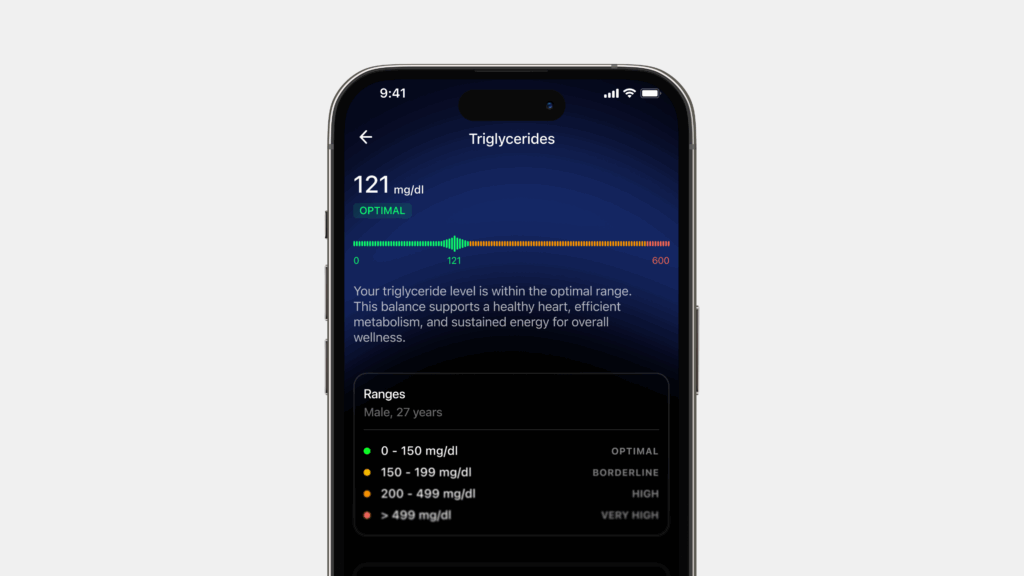There have been numerous papers that have been published on ‘metabolic health’. You may have read the term across the internet and in various research papers, but are still not quite sure of what the term means. Let’s start by understanding what metabolism means.

Highlights
- Metabolic health factors directly relate to a person’s risk for insulin resistance, heart disease, diabetes, and stroke,
- A marker of good metabolic health is having ideal blood glucose levels. Glucose is an essential fuel for the cells in the body when it’s present at normal levels,
- There has been growing evidence about how sleep loss and sleep disorders cause disparities in metabolism.
What is Metabolism?
According to news-medical, metabolism is a word used to describe all chemical reactions involved in maintaining the living state of the cells and the organism. It can be further divided into two categories:
- Catabolism – the breakdown of molecules to obtain energy
- Anabolism – the synthesis of all compounds needed by the cells
Metabolism is closely connected to nutrition and the availability of nutrients.
What is Metabolic Health?
In a study published in the journal, Metabolic Syndrome and Related Disorders, metabolic health is having ideal levels of blood sugar, triglycerides, high-density lipoprotein (HDL) cholesterol, blood pressure, and waist circumference, without using medications.
Why is metabolic health important?
These metabolic health factors directly relate to a person’s risk for insulin resistance, heart disease, diabetes, and stroke. There has been a large push to address the growing problem of obesity, via public health policies and measures. This study has showcased the need to go beyond weight as a metric to know about the disease. The understanding gained from the study shows that individuals who are of normal weight seem to develop diseases that are typically correlated with obesity.
Hence, understanding markers that go beyond the weighing scale is not only important but vital. These biomarkers can give actionable insights to the body, possibly helping people move towards a healthier lifestyle.
How to improve your metabolic health?
Metabolism is your life force. The body relies on metabolism to carry out all its functions – whether it’s storing or burning fat, regulating sugar levels, or keeping your neurons firing – so metabolism has an enormous impact on your health. Metabolism provides the energy your body needs to breathe, circulate blood, grow and repair cells, and everything else it does to survive.
There are various ways in which you may optimize and improve your metabolic health:

Glucose control
One of the markers of good metabolic health is having ideal blood glucose levels. Glucose is an essential fuel for the cells in the body when it’s present at normal levels. When the blood glucose levels are high, they cause various types of disruptions in the body. When high levels occur it means that your body isn’t making enough insulin or isn’t effectively using insulin, a hormone that is in charge of regulating blood glucose and helping it enter cells for energy.
You can keep your blood glucose levels at an optimum range in a number of ways. A good first step is becoming aware of where your blood glucose levels stand. Glucose monitoring can give you great insights such as glucose variability that represents the quality of fuel and oxidative stress on your body. Keeping your blood glucose variability under 12% is considered an ideal range.
Consuming low glycemic index foods are known to keep the blood sugar levels low or reduce the blood sugar levels. Glycemic Index (GI) measures how the body absorbs or digests foods, affecting the rate at which blood glucose levels rise.
Sleep
The importance of sleep is widely studied. Recent findings suggest that sleep plays a housekeeping role, removing toxins in your brain that build up while you are awake. Getting poor sleep may disrupt the important biochemical processes in the body. Sleep disorders are a growing problem, having a tremendous impact on public health.
There has been growing evidence about how sleep loss and sleep disorders cause disparities in metabolism. Lab studies have shown that sleep deprivation can alter the glucose metabolism and hormones that are involved in regulating metabolism. Specifically, it can lead to decreased levels of leptin, a hormone that inhibits hunger and regulates energy balance, and increased levels of ghrelin, a hormone that increases appetite also called the hunger hormone.

Exercise
Low-intensity physical activity may help in improving overall health. According to research that was published in BMJ, which took 36,000 individuals’ movements and measured their intensity of physical activity, data suggests that all physical activity, even low intensity counts. Low-intensity exercise such as brisk walking may have beneficial effects.
Intense exercise is also known to improve metabolic health, but overexercising generally translates into prioritising performance over longevity. A regular exercise regime can improve metabolic health in a few weeks’ time.
Research in mice and humans has suggested that intense exercise boosts communication between skeletal muscles and fat tissue. This helps in fine-tuning metabolism and improving performance.
Stress reduction
Stress has been associated with various metabolic processes, in specific the hormone called cortisol. According to a paper published in Science Direct, the stress response helps in dispatching energy stores to respond to a threatening stimulus. An observation of the response has shown the diversity of metabolic changes that can occur as a result of stress.
On one hand, acute intense stress is associated with suppression of feeding and reduction of weight gain. On the other hand, chronic stress can lead to overeating, increases in visceral adiposity and weight gain.
Over time with chronic stress and chronically elevated glucose levels, the pancreas (which produces insulin to bring down glucose levels in the blood) loses the ability to respond to a high glucose stimulus, causing a reduction in the activity of insulin.
While stress is a part of our lives, it is important to recognise and understand the various ways in which we can manage them.
1) Exercise
According to Harvard Health, the benefits of aerobic exercise don’t just go to your heart but also to your mind. Working out helps reduce cortisol and adrenaline while stimulating the production of endorphins. These are the chemicals in your brain known as the body’s ‘natural painkillers’ that give feelings of relaxation and optimism.
2) Deep breathing:
According to Harvard Health, deep abdominal breathing helps in completing the entire oxygen exchange. That means the benefits of the oxygen coming in from outgoing carbon dioxide can slow the heartbeat and lower or stabilize blood pressure. Deep breathing also goes by various names such as diaphragmatic breathing, abdominal breathing, belly breathing, and paced respiration.
3) Eat well:
Foods can help counteract the effects of stress in many ways. Healthy eating can cut levels of cortisol and adrenaline that take a toll on the body over time. This can help counteract stress by lowering blood pressure and helping the immune system.

Nutrition
According to the World Health Organisation (WHO), consuming a healthy diet consistently can help prevent overall noncommunicable diseases (NCDs) and other conditions. Since there is an increased production and availability of processed, refined foods and changes in lifestyle, people are consuming larger amounts of these high energy foods. This can possibly increase risks related to metabolic health.
A study observed the Relationship between Dietary Patterns and Metabolic Health in a Representative Sample of Adult Australians. It identified that 20% of Australian adults aged ≥ 45 years were metabolically unhealthy. This was characterised by higher consumption of an unhealthy diet, through refined and processed foods, associated with a decreased likelihood of having a healthy metabolic profile. While the reverse was true for healthy diets, ie, increased likelihood of having a healthy metabolic profile.
Foods that could help improve your metabolic health include:
- Fibre-rich foods such as fresh fruit, vegetables, oats, barley etc
- Potassium-rich foods that help in balancing blood pressure such as bananas, lentils, black beans etc
- Foods that contain omega-3 fatty acids such as flax seeds, almonds, tuna etc
It is also important to avoid high levels of sugary foods, transfats and sodium.
Conclusion
There are various ways that can help you improve your metabolic health. These include glucose control, getting a good quantity and quality of sleep, well-balanced nutrition, low to intense physical exercise, and managing stress. These factors may help improve or maintain ideal levels of blood sugar, triglycerides, high-density lipoprotein (HDL) cholesterol, blood pressure, and waist circumference, for good overall metabolic health.
Disclaimer:The contents of this article are for general information and educational purposes only. It neither provides any medical advice nor intends to substitute professional medical opinion on the treatment, diagnosis, prevention or alleviation of any disease, disorder or disability. Always consult with your doctor or qualified healthcare professional about your health condition and/or concerns and before undertaking a new health care regimen including making any dietary or lifestyle changes.








